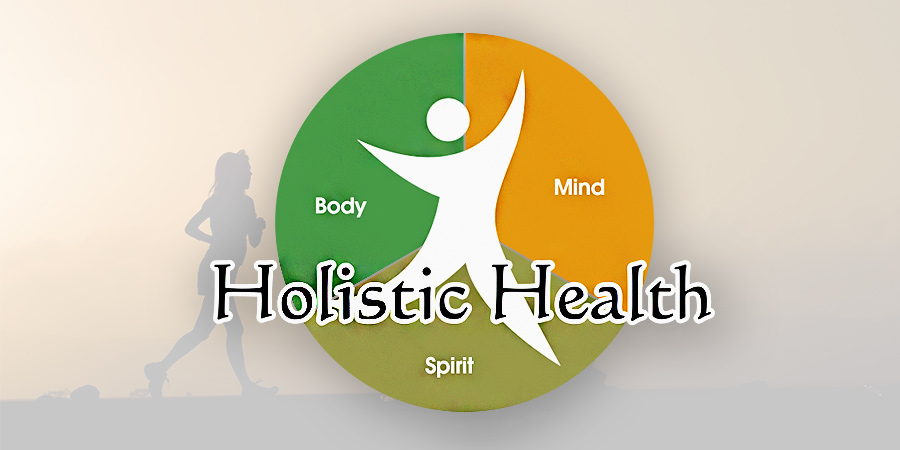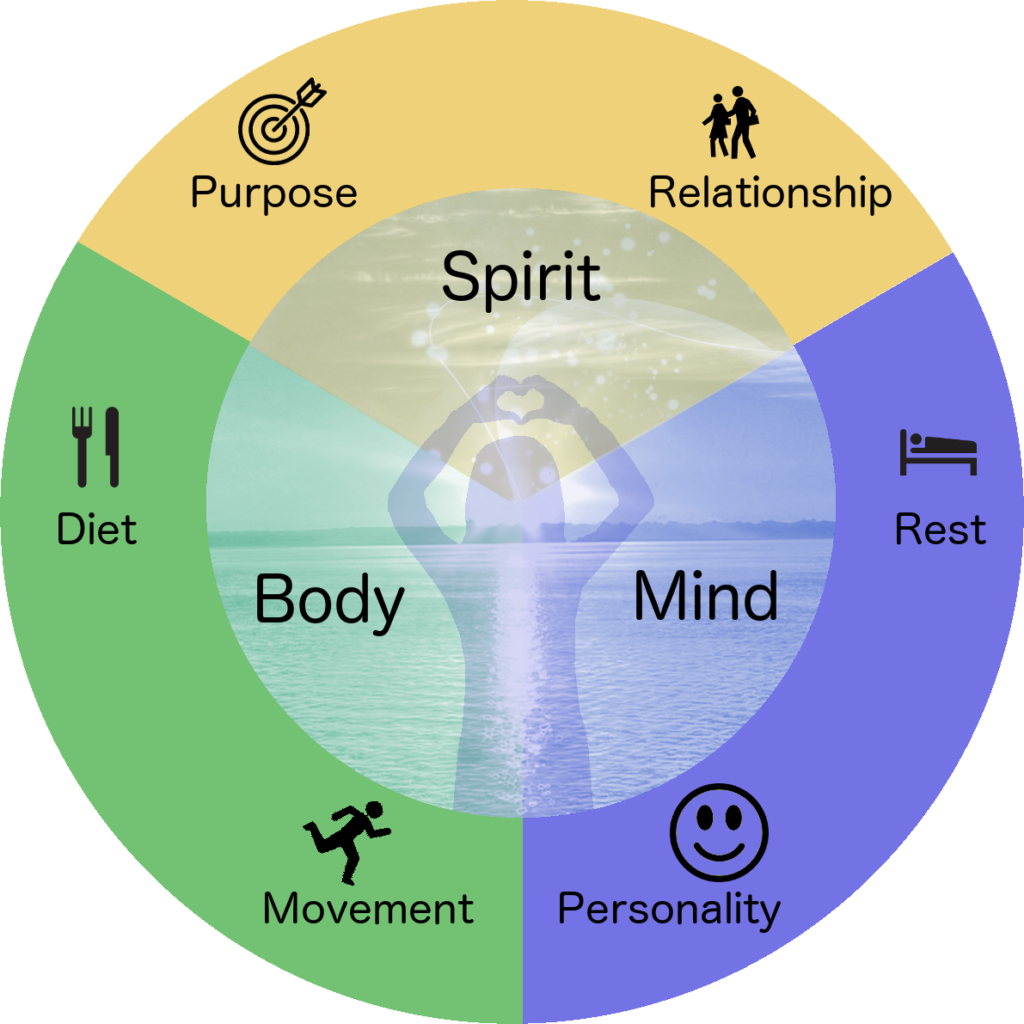
Have you ever felt that maintaining your health requires more than just going to the gym or watching what you eat? This is exactly what holistic health stands for, an all-inclusive method that combines physical, mental, and spiritual well-being among others.
What are the key principles of holistic health?
The key principles of holistic health include balance, wellness, and prevention. Holistic health emphasizes treating the whole person’s mind, body, and spirit rather than just symptoms, promoting overall well-being through lifestyle choices.
Holistic health deals with the integrated system of mind, body, and spirit that strives for balance and harmony. This approach, therefore, emphasizes prevention, as it advocates a healthy lifestyle with a good diet, regular exercise, and stress management. It also underscores holistic health as very personal; that is, everybody’s path toward health and well-being differs.
In light of this, it encourages self-care the process of being mindful and taking care of one’s emotional well-being to foster overall well-being. By attending to all aspects of the individual, holistic health practitioners are thus in a position to promote long-lasting wellness and disease prevention.
How can diet support holistic health practices?
Diet supports holistic health by providing essential nutrients for the body and mind, promoting energy and balance. A holistic diet emphasizes whole foods, plant-based nutrients, and mindful eating to enhance overall well-being.
A holistic diet mainly concentrates on whole, unprocessed foods that are rich in nutrients and support both physical and mental health. This will involve fruits, vegetables, whole grains, lean proteins, and healthy fats that provide the body with vitamins and minerals. Principally coupled with this would be mindful eating principles: being more conscious of hunger and savoring the meal.
This can enable a person to acquire or adopt positive attitudes or relationships with food and lead to a nourishment of both body and mind: bringing in vivid energy, enhancing moods, and preventing life illnesses, therefore aligning dietary choices in accordance with holistic health principles.

What role does exercise play in holistic health?
Exercise is vital in holistic health, enhancing physical fitness, mental clarity, and emotional well-being. It supports balance and reduces stress, contributing to overall health through regular physical activity.
Cardiovascular health is improved through regular physical activities that also strengthen muscles and increase endurance. Exercise means increased blood flow to the brain, and this brings about more mental clarity, a greater state of focus, and improved cognitive functioning.
Exercise provides endorphins to the body that bring about the alleviation of stress and the process of well-being and emotional balance. Holistic health is the putting together of various forms of exercise, such as yoga, walking, or strength training, in supporting the rhythms of the body toward a balanced lifestyle.
How does stress management contribute to holistic health?
Stress management contributes to holistic health by reducing anxiety and promoting relaxation. Techniques like meditation and deep breathing balance the nervous system, enhancing well-being.
Effective stress management forms an integral part of holistic health since prolonged stress negatively alters physical and mental well-being. Such techniques as meditation, deep breathing, and mindfulness work by taming the nervous system, hence helping people alleviate anxiety by feeling relaxed.
Such practices facilitate a balanced reaction to stressors so that the body does not undergo any negative impact of the same. Managing stress regularly increases emotional strength and mental clear-headedness for overall wellness. Holistic health, therefore, incorporates the management of stress into everyday life to ensure a healthy balance and avoid potential illnesses that may arise from stress.
that address many pillars at once such as yoga which enhances physical, mental, and spiritual aspects simultaneously. Furthermore seeking help from peers or professionals who are knowledgeable in this area can offer the necessary advice and motivation needed to stay focused.
What is the importance of mental health in holistic practices?
Mental health is vital in holistic practices, influencing emotional balance, stress resilience, and overall well-being. Addressing mental health is key to achieving holistic wellness.
Holistic practices recognize the roles of mental and emotional states in physical well-being by influencing the stress levels, immunity, and energy endowed in every individual. Mindfulness, therapy, and self-care develop emotional resilience and clarity endowing balance and harmony to mental health.
Looking at mental health from the point of view of a holistic approach to health can give people the potential to experience complete wellness that aligns body, mind, and spirit. Such an embracing view supports the proactive caring for long-term health and happiness.

How can holistic health incorporate spirituality?
Holistic health incorporates spirituality by fostering connection, purpose, and inner peace. Spiritual practices like meditation and reflection enhance overall well-being and life satisfaction.
Spirituality forms part of holistic health. Holistic practices encourage exploring spiritual beliefs and practices like meditation, prayer, and contemplation to bring peace and self-awareness. These practices develop a greater personal understanding of oneself and the world, providing better emotional balance and resiliency.
Spirituality offers individuals an integration into their lives for more satisfaction and fulfillment by aligning values with actions. Holistic health accepts all the diverse spiritual paths that people take toward harmony and well-being.
What is the role of natural remedies in holistic health?
Natural remedies in holistic health use plant-based treatments to support healing and balance. Herbs, essential oils, and supplements enhance well-being naturally.
Herbal remedies, essential oils, and nutritional supplements are used to treat a myriad of health issues, from inflammation to stress. These nonchemical treatments are greatly valued for their potential to rebalance and build health without the side effects of drugs.
Quite often, a holistic health practitioner will combine these natural remedies with lifestyle modifications in order to come up with an integrated treatment plan that gets to the root cause of the health concerns and thereby promotes overall well-being.
Wrapping Up!
Are you prepared for a more complete transformation when it comes to improving your health? Taking into account every aspect through which we express ourselves during this process leads to great rewards both mentally physically and emotionally involved within such a kind of approach towards wellness. Holistic health care cannot fit everybody but represents personal growth over time. Slow beginnings like mindful meditation or short walks could eventually turn into significant shifts depending on what resonates with different people based on their lifestyle choices and future aspirations.

